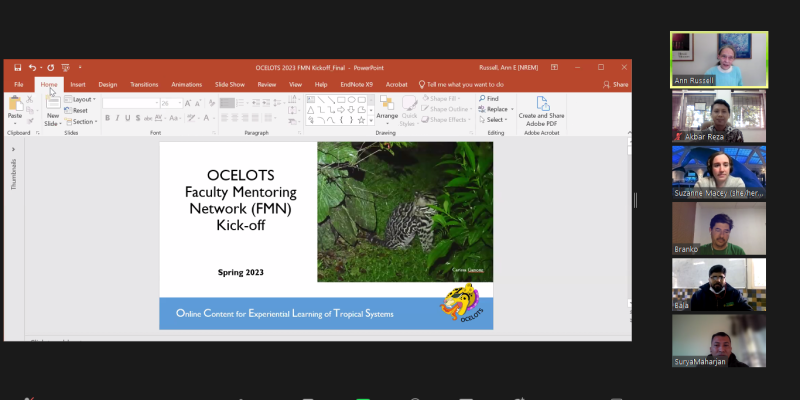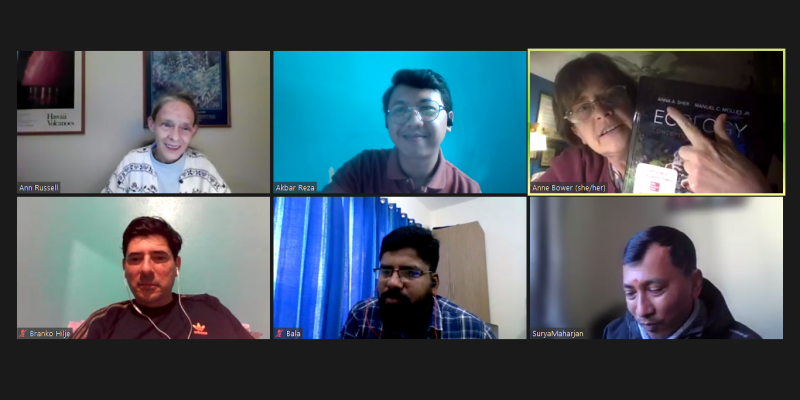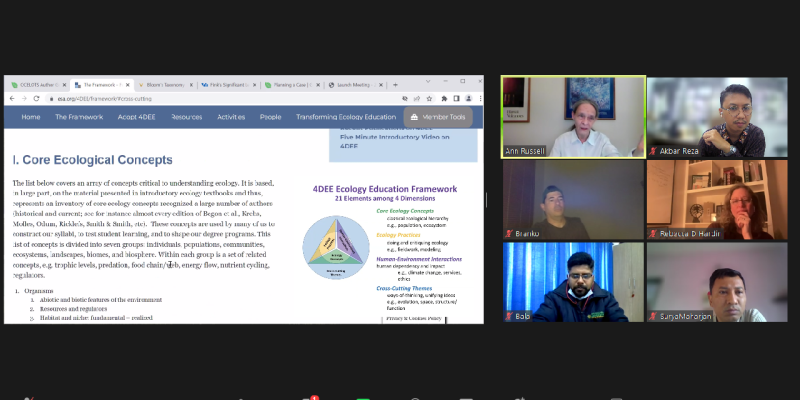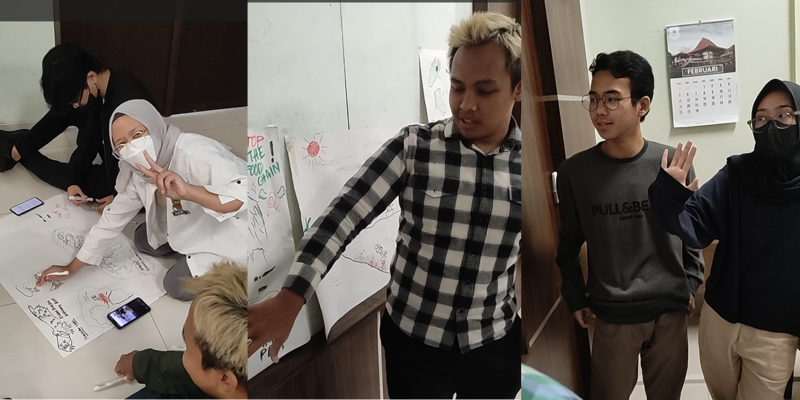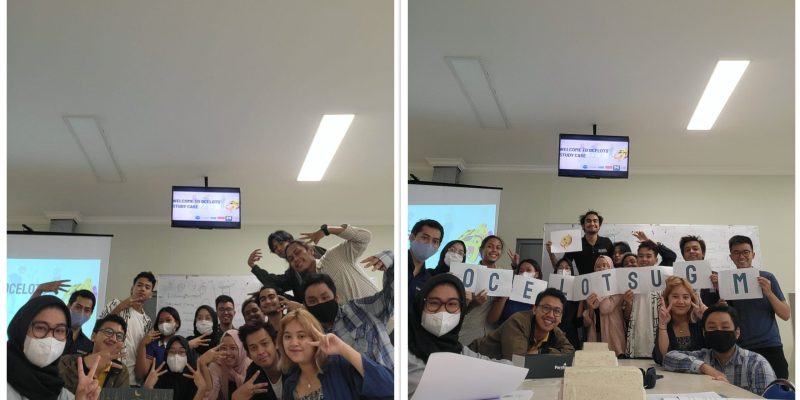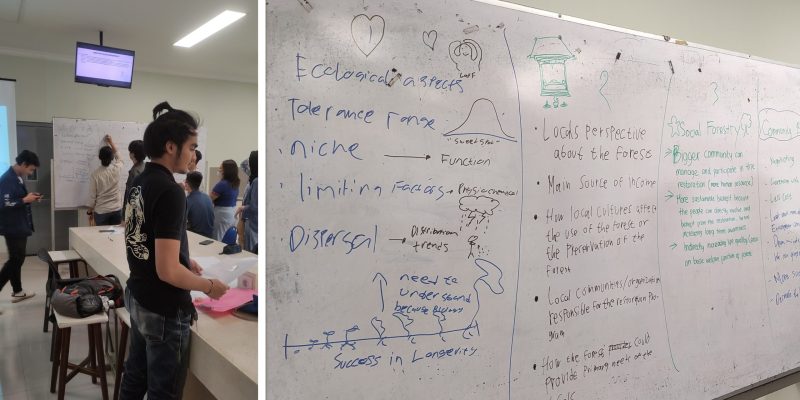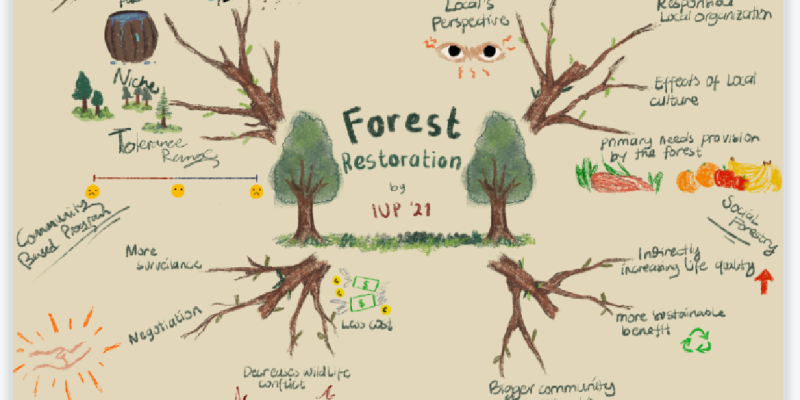Yogyakarta – Akbar Reza, M.Sc., a faculty member from the Faculty of Biology at UGM in the Laboratory of Ecology and Conservation, has successfully completed the ESA-QUBES Mentoring Network 2023 Program. This was a mentoring program lasting approximately 4 months for lecturers and researchers in the field of Tropical Biology, specifically Tropical Ecology. The program was funded by the National Science Foundation (NSF) US, with the main organizers being Iowa State University and the University of Michigan, in collaboration with the Ecological Society of America (ESA) and Quantitative Undergraduate Biology Education and Synthesis (QUBES).
In the ESA-QUBES Mentoring Network 2023, which was attended by 12 participants from various countries including the US, Brazil, Costa Rica, Puerto Rico, India, Nepal, and Ghana, participants faced the main challenge of developing an Ecology class curriculum aligned with ESA standards. They also enriched the class by implementing a case study module called OCELOTS (Online Content for Experiential Learning of Tropical Systems) through the interactive platform https://www.learngala.com. This involved adapting the module to the local context. The primary goal of OCELOTS in this mentoring program was to transform research outcomes in the field of Tropical Biology into case studies that are more digestible and can be applied interactively and innovatively in the classroom. Moreover, the application of the case study module in the classroom was expected to broaden cultural and geographical perspectives and enhance quantitative reasoning and skills. In addition, mentoring participants were challenged to develop teaching approaches and pedagogy plans, hold meetings with mentors and fellow participants every two weeks for discussions and mutual feedback on implementation plans, share teaching experiences and teaching modules, and conclude with plans for publishing teaching modules and collaborating with fellow participants. Participants who completed all tasks and implementation targets were eligible to receive the Education Scholar certificate, a stipend, and were encouraged to become mentors for the next cohort, including developing case study modules through the Incubator program.
On this occasion, the case studies and learning methods that were mentored during the Mentoring Network process were implemented in the Ecology class for the International Undergraduate Program (IUP). The participation of the Faculty of Biology in this activity marks the strong commitment of the Faculty of Biology staff in developing education and research in the field of Tropical Biology. It is hoped that the experience and knowledge gained from this program will make a significant contribution to the efforts to preserve tropical ecosystems in the present and future.
The publication of the mentoring activity can be accessed at the following link [https://qubeshub.org/community/groups/ocelots/publications?id=4402&v=1&tab_active=about](https://qubeshub.org/community/groups/ocelots/publications?id=4402&v=1&tab_active=about) and information regarding registration and selection for the mentoring program can be accessed at the following link [https://qubeshub.org/community/fmns#new](https://qubeshub.org/community/fmns#new).

